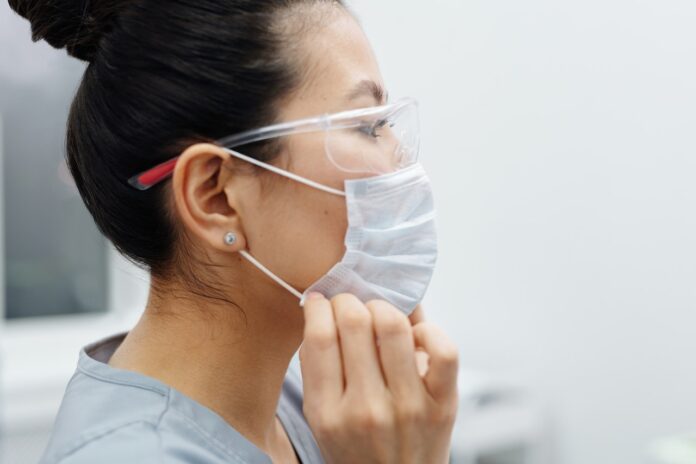The pandemic didn’t just impact entire health sectors. It also affected individual roles. It has evolved the way we look at the whole industry in a nutshell. However, the pandemic highlighted the roles of nurses and their contribution to the entire healthcare system. As the world enters a post-pandemic world steadily, it is obvious we can’t fall back to the traditional hierarchy system.
Nurses proved to be excellent frontline workers, so it is only natural to get more roles to serve in the hospital sector. The industry is interconnected, so if one part evolves, the entire health system changes. As nurses get more prominent roles, it is easy to see the health system will get more streamlined. Here is what the future holds for nurses and the health system inadvertently:
1. Nurses Will Be Advocates
Since most nurses served as frontline workers, they are far more suitable for advocating for vulnerable groups. Nurses witnessed the lack of systemic healthcare for weak and vulnerable people, so when they go to make demands in front of the government, it would be to streamline their care. It means there needs to be an effective system in the healthcare sector for the vulnerable. Children and younger patients should get priority treatment followed by pregnant women. Patients should have facilities available around the clock.
2. Provide More Specialist Care
A new world of learning, proficiency, and implementation now exists due to e-learning options. Moreover, the adaptability of the internet and online education in nursing education and practice is vital. Hospitals should encourage nurses to take up more courses, such as going for a master of science in nursing online to gain more skills. With more knowledge and skills at hand, nurses can come back to hospitals to learn more. They can provide more specialist care. Suppose a nurse also takes up sign language classes to treated and hard-of-hearing patients. It streamlines the healthcare system since now there is no barrier between the patient and the healthcare practitioner. It also helps doctors tend to other patients while nurses provide specialist care.
3. Nurses Can Help With More Health Training
The pandemic has emphasized the need for high-quality hygiene. Unfortunately, it is easy to overlook this critical aspect of healthcare. Nurses can help uphold health training. They can teach new staff members what the hospital policies on cleanliness are. They can help post posters and fliers around the hospital to remind people to sanitize and wash their hands. Nurses can also collaborate with public health workers and study statistics to determine how much the community lacks health training. They can then aid public health workers in looking after these people and providing them treatment and instructions on better care.
4. Step In For Doctors
Like we mentioned earlier, e-learning is the need of the hour. Nurses who have done a diploma or DNP program online are highly suitable for this role. Hospitals see numerous patients every day, and not all patients need critical care. Some patients come in to see physicians get their prescriptions refilled. Some patients come in for a routine check-up. In such cases, nurses can administer care to such patients while the doctor attends more critical cases. This smart use of labor helps hospitals to utilize resources and keep treatment steady. It also ensures patients don’t have to wait unnecessarily and get all their needs met right away.
5. Disperse Educational Material
Nurses have both the skills and knowledge to get into education. People need to know how they can take care of themselves and why vaccines are necessary. Nurses can collect information and compile this into different resources. They can spread these resources in various forms, such as PDF, pamphlets, or put them on the hospital’s website. Education is important because people feel hesitant to trust health care practitioners due to the lack of information.
6. Use Digital Technology to Help Patients
Nurses can use technological advancements to mainstream healthcare. It means asking patients to purchase devices that can help them monitor their health. It also includes talking to patients over video conferencing and encouraging them to seek telehealth. In case patients need medicines, they can guide them to online pharmacies to get their medications. In cases, patients are bedridden but vulnerable to hospitals. They can instruct family members on better patient care; this way, they can save needless trips to the hospital. It helps nurses to save more lives and keep hospitals less crowded.
7. Nurses in Administration
Nurses can now hold better administration positions. It means they can work with the hospital’s management to make sure the best nurses appear for the job. In case nurses are performing below par, they can issue them warnings and ultimately fire them. They can also write and adhere to the department budgets to make sure hospitals have enough annual funds. Such nurses are also suitable for attending meetings that impact the hospital’s environment.
These nurses are also essential to maintain hospital records and their accuracy. They can also guide nurses to match with better educational opportunities. On the whole, this impacts the healthcare system. When nurses are better trained and better educated, they need less supervision and can handle most cases independently. When everyone can do their job correctly, there is no ambiguity in the hospital’s environment. Patients can match with their doctors right away and get quality treatment.
Wrap Up
Nurses play a pivotal role in the healthcare sector. Their skills and expertise keep the hospital structure afloat. Nurses have shown great endurance during the pandemic. Therefore there has been a noticeable shift in their roles. Nurses are suitable for advocating for vulnerable groups. They can train to become specialists. They can also work with public health workers to educate society on better health measures. With more training and knowledge, nurses can also step in for doctors and administer care. Nurses can also provide educational material to the community to help them learn better about medicine and taking care of their health.


